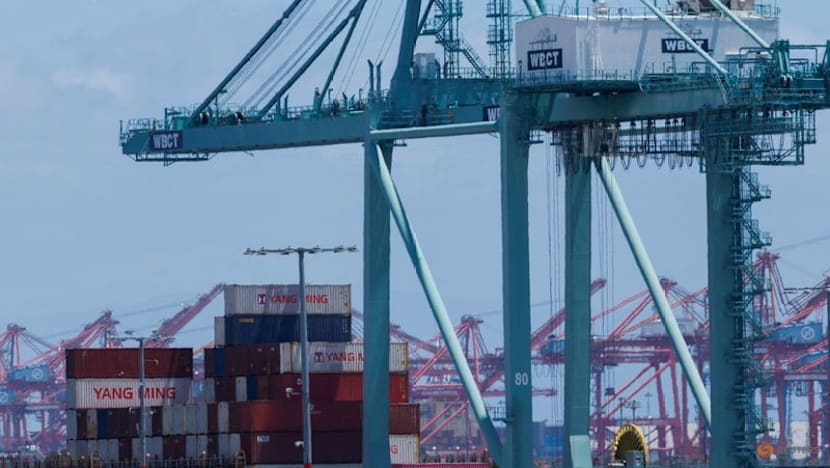US manufacturing mired in weakness; AI spending boom helps some factories

FILE PHOTO: Chinese shipping containers are shown at the Port of Los Angeles, in San Pedro California, U.S., May 13, 2025. REUTERS/Mike Blake/File Photo
WASHINGTON :U.S. manufacturing contracted for a sixth straight month in August as factories continued to grapple with the impact of import tariffs, but an artificial intelligence spending boom is lending support to some segments of the industry.
The Institute for Supply Management (ISM) said on Tuesday its manufacturing PMI edged up to 48.7 last month from 48.0 in July. A PMI reading below 50 indicates contraction in manufacturing, which accounts for 10.2 per cent of the economy.
Economists polled by Reuters had forecast the PMI would rise to 49.0. Despite the persistent weakness in the PMI, businesses have been boosting spending on AI products, which is helping to offset some of the drag from import duties.
Spending on intellectual property products grew at its fastest pace in four years in the second quarter, while investment in equipment was strong. Economists expect the AI spending spree to continue, with factories also likely to get a boost from accelerated depreciation allowances on investments in President Donald Trump's tax and spending bill.
The ISM survey's forward-looking new orders sub-index increased to 51.4 after contracting for six consecutive months.
But the survey's production gauge fell to 47.8 from 51.4 in the prior month. With production declining, factory employment remained subdued. The ISM has noted an "acceleration of headcount reductions due to uncertain near- to mid-term demand."
Suppliers took a bit longer to deliver materials to factories last month. The ISM survey's supplier deliveries index increased to 51.3 from 49.3 in July. A reading above 50 indicates slower deliveries.
Lengthening delivery times meant prices paid by factories for inputs remained elevated. The survey's prices paid measure slipped to a still-high 63.7 from 64.8 in July. The high reading supports economists' contention that goods prices will accelerate in the second half of 2025.
Tariffs have been slow to pass through to higher inflation, with economists arguing that businesses are still selling merchandise accumulated before the import duties kicked in. Businesses also have been absorbing some of the tariff-related costs.
But inventories were drawn down in the second quarter and companies have warned tariffs are raising their costs, which economists expect will eventually be passed on to consumers.













